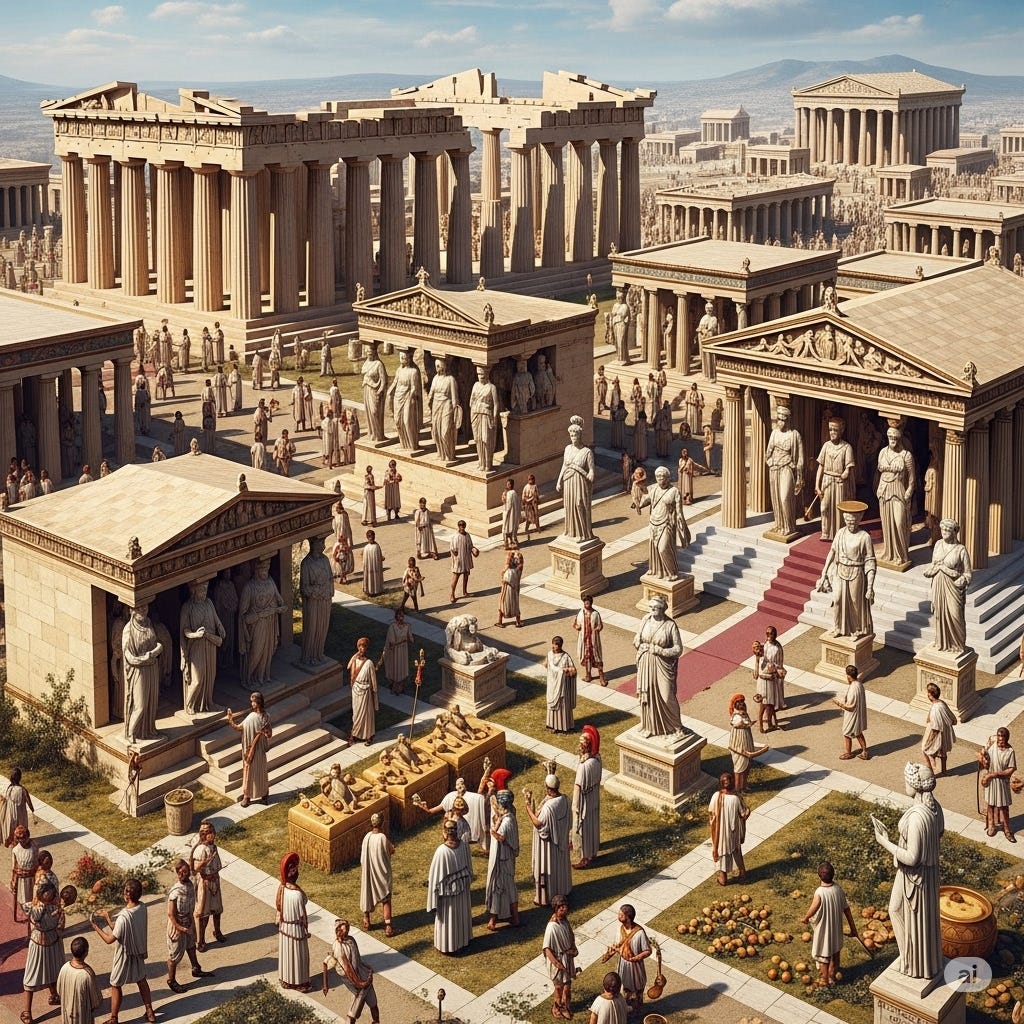The Knowable God
5/26/25 Bible Thought (Acts 17)
Paul’s missionary efforts were a difficult road. While Jesus continued to faithfully build His church, it wasn’t without opposition.
After jealous Jews chased Paul out of both Thessalonica and Berea, he eventually found himself in the city of Athens. There he saw that people were so religious that they were setting up idols even to gods they didn’t know as some form of insurance policy! (Acts 16:23).
Scholar, Clinton Arnold, sums this up nicely when he writes,
“By setting up altars even to unknown gods, people could be sure that they were not unwittingly neglecting to honor one of the gods.”[1]
They had idols set up in Athens to every god they could (or couldn’t) think of! Their bases were covered, so to speak.
It is this situation into which the apostle Paul comes.
After debating with some locals, he is given the opportunity to speak before the Areopagus, which was both a city council and a location. Paul uses their idol to the unknown god as an on-ramp to boldly presenting the gospel before all who were gathered there.
Contrasting the unknown god, the good news of the gospel is that the true God, the Creator of heaven and earth and everything in them is knowable in a personal relationship established through the blood of Jesus Christ.
In fact, God desires relationship.
He didn’t create the world and take His hands off the wheel as some religious systems would hold. He governs it presently by His providence, establishing the times and bounds of human existence (Acts 28:26) in order that people might seek Him (Acts 28:27).
Following this, Paul points out that God isn’t far from any of us, for “In him we live and move and have our being” (Acts 17:28).
This doesn’t mean, at least with the Christian understanding, that all things are God—rather, that God is omnipresent. I have heard this frequently defined as, “He is everywhere present and nowhere absent.”
As David once sang,
“Where shall I go from your Spirit? Or where shall I flee from your presence? 8 If I ascend to heaven, you are there! If I make my bed in Sheol, you are there! 9 If I take the wings of the morning and dwell in the uttermost parts of the sea, 10 even there your hand shall lead me, and your right hand shall hold me” (Ps. 139:7-10).
God is inescapable and this God has made Himself known in Jesus Christ (Jn. 1:18). He has made Himself available to us. Not one of these things was He obligated to do! What a gift it is that God has revealed Himself both in creation and redemption.
What this God desires most of all isn’t merely our worship, but us. Houses of worship are nice, but they can’t truly house the infinite. Nor does He need anything from human hands for He is the source of all things (Acts 16:25).
Instead, He desires for people to repent and to be made right with Him before the day of judgment (Acts 16:30). He desires that we might recognize our wickedness and go from running away like Adam in the Garden of Eden to running to Him as the prodigal son.
Ultimately, He desires people. He’s opened the door and made the way, now the only question is will we turn to Him and find the life we were created for?
“And this is eternal life, that they know you, the only true God, and Jesus Christ whom you have sent” (Jn. 17:3).
What a gift it is to know Him! This is something that all believers should never take for granted.
[1] Clinton E. Arnold, Acts, ed. Clinton E. Arnold, vol. 2B of Zondervan Illustrated Bible Backgrounds Commentary (Grand Rapids, MI: Zondervan, 2002), 176.



I love how Paul quotes their own philosophers and poets to them in Acts 17 to acknowledge their "unknown god" as the One they ought to worship - the connection there to Romans 1 (what can be known of God is plain to them)